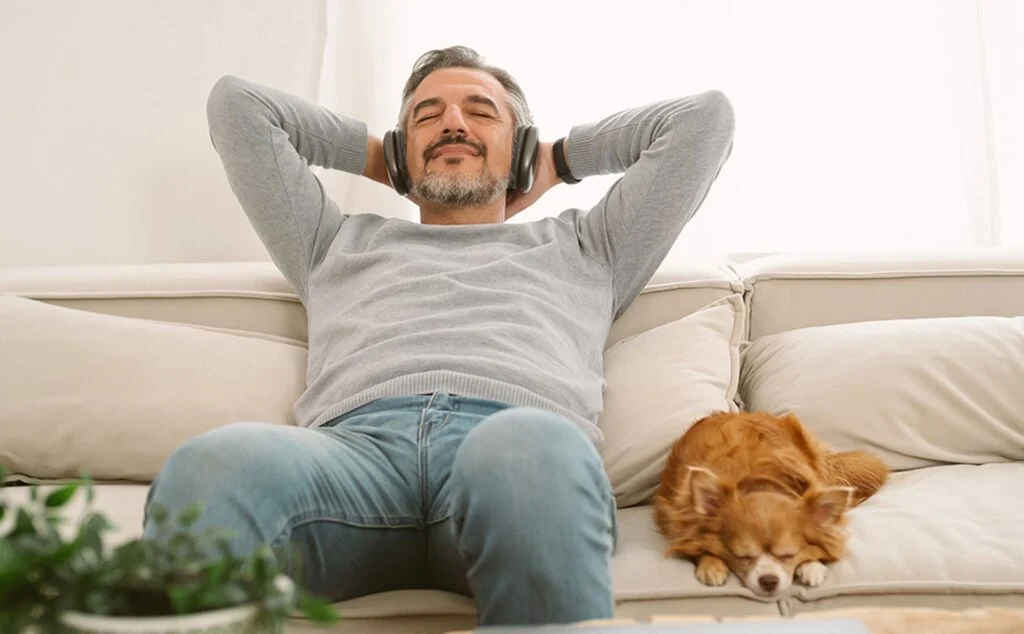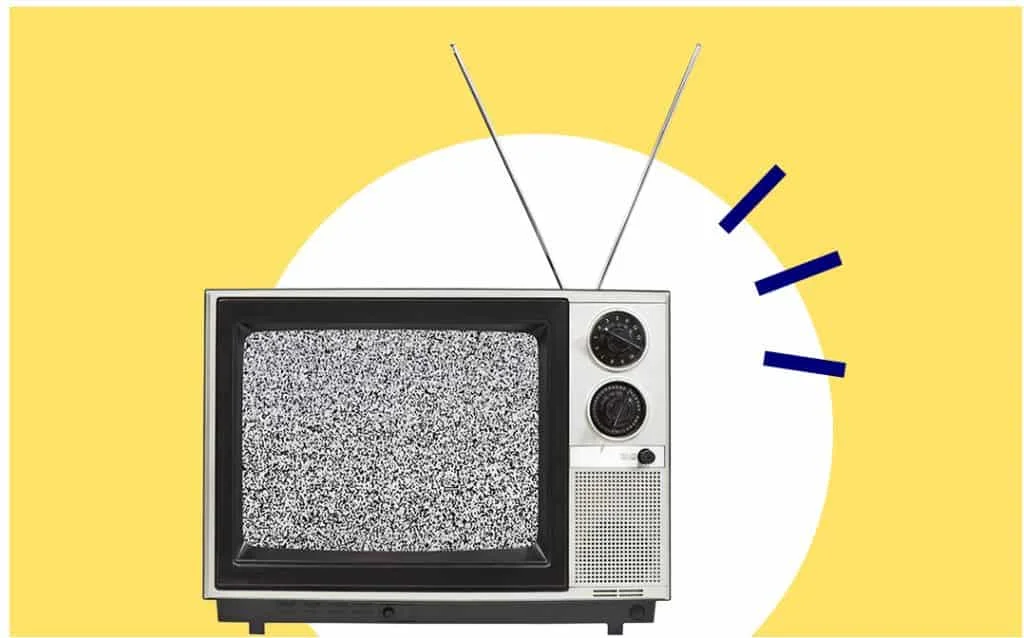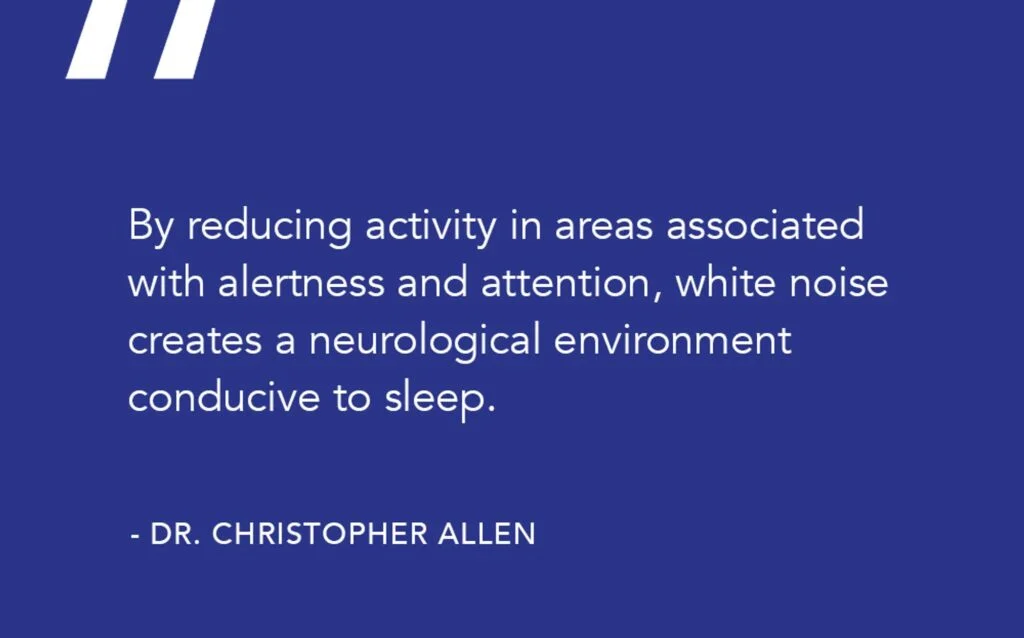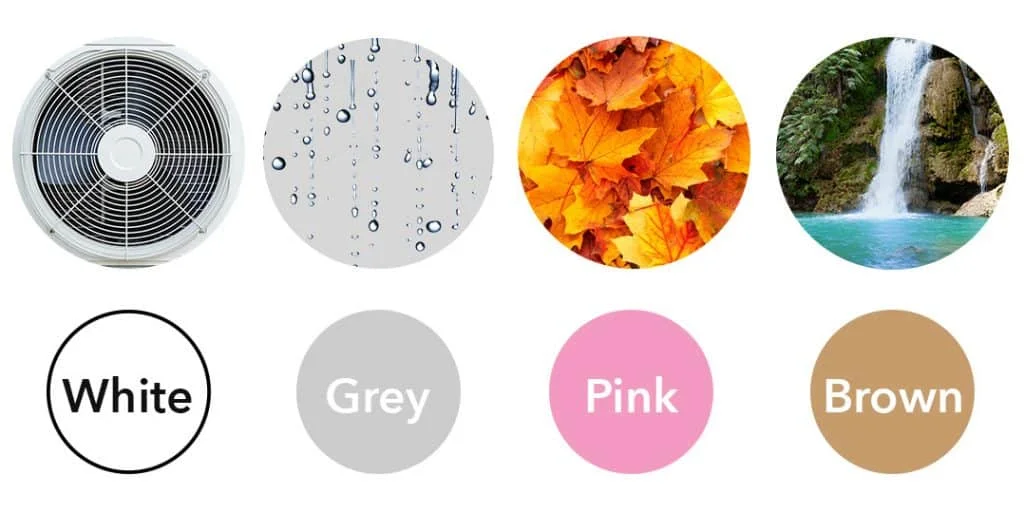
Nearly 25 percent of the population suffers from disturbed sleep due to ambient noise, according to The World Health Organization. (1) And understandably so, you may be ready to hit the hay at 10 p.m., but the city outside your window will always be alive and kicking. From the blare of car horns on the street below to the incessant barking of your neighbor’s dog, noise and sleep never make good bedfellows.
White noise, however, can be a welcome alternative. Projected by machines, apps, and online videos, this type of noise is sought after by the restless among us because it can relax sleepers and create stable sound environments.
Dr. Christopher Allen, a Board-Certified Sleep Medicine Physician, Pediatric Neurologist, and Sleep Science Advisor for Aeroflow Sleep, says, “In the quest for a good night’s sleep, many people have turned to the comforting embrace of white noise. This unobtrusive sound has gained popularity as a sleep aid, offering myriad benefits for those struggling with sleep disturbances.” Here’s the skinny on white noise for sleep.
Note: The content on Sleepopolis is meant to be informative in nature, but it shouldn’t be taken as medical advice, and it shouldn’t take the place of medical advice and supervision from a trained professional. If you feel you may be suffering from any sleep disorder or medical condition, please see your healthcare provider immediately.
Long Story Short
- White noise combines sounds at different frequencies into a steady hum that remains at the same intensity.
- White noise can “mask” ambient sounds that may otherwise disturb sleep.
- White noise is the frontrunner for sleep sounds, but emerging research shows that pink and brown noise may be more soothing and sleep-promoting.
What Is White Noise?
White noise is a steady sound that contains all audible frequencies. Basically, if you combine every sound a human could hear (from the low lows to the high highs), you’d get white noise.
“White noise can be created by combining sounds at different frequencies, and its purpose is to mask or drown out other ambient sounds,” Allen tells Sleepopolis. (2) “It’s often described as a constant, steady hum, similar to static on an old-school TV that’s lost its signal or radio when not tuned to a station.”
Another way to think of white noise is as a background hum that’s consistent in terms of tone, frequency, and volume.

How Does White Noise Help You Sleep?
Essentially, white noise has a sound-masking effect that covers up ambient noise (all the noise in any given environment), like traffic outside your window, your neighbor’s nightly arguments, or Fido barking across the street.
Allen says, “Imagine your brain as a sensitive listener, constantly on alert for environmental changes. Even the tiniest bark or car honk can disrupt your slumber, pulling you back from the edge of sleep. White noise, with its even blanket of sound, acts like a sonic bodyguard. It masks these disruptive fluctuations, allowing your brain to relax and finally doze off.”

Allen notes — (and research shows) that “the benefits of white noise go beyond mere muffling.” — there’s plenty of evidence to suggest that white noise can be beneficial to sleep.
First, Allen notes that research suggests white noise may influence brain wave patterns. (3) “By reducing activity in areas associated with alertness and attention, white noise creates a neurological environment conducive to sleep.” Allen likens it to “nature’s own lullaby, gently coaxing your mind into a slumbering state.”
Digging a little deeper, we found multiple studies to corroborate the positive effects of white noise on sleep. In one study from 2021, researchers found that white noise significantly improved sleep for people complaining of sleep difficulties due to high levels of environmental noise, and a more recent study from 2022 discovered that white noise could help enhance the sleep quality of ICU adult patients. (1) (4)
Potential White Noise Risks
While some people may swear by white noise for sleep, some experts have doubts despite the research supporting this non-pharmacological sleep aid. Some of the more notable concerns about white noise include dependency, and the masking of relevant (and important) ambient noise (i.e., a baby crying or a morning alarm).
Moreover, in a 2021 review of the scientific literature investigating noise as a sleep aid, Mathias Basner, a professor of psychiatry at the University of Pennsylvania School of Medicine in Philadelphia, and his colleagues highlighted animal studies showing that continuous white noise exposure can disturb slow wave sleep (the deepest stage of sleep) and/or rapid eye movement (REM) sleep. (5)
The TLDR: White noise may work for some people, but it isn’t a one-size fits all solution. The data is mixed, but it may be worth a try if you find yourself particularly aware of distracting sounds throughout the night.
White Noise and Tinnitus
A quick internet search will reveal that white noise might be useful for managing tinnitus, (a phantom ringing or buzzing in the ears). Allen cautions that while it can “mask the ringing or buzzing sounds associated with the condition, it’s not a cure.”
Unfortunately, we didn’t find a definitive answer by sifting through the research either. While some studies show that white noise may be an effective treatment for tinnitus, others show limited therapeutic effects. (6)
More specifically, a recent study in the JAMA Journal of Otolaryngology-Head & Neck Surgery revealed that the lack of structure in white noise could worsen tinnitus symptoms. Researchers of the study also suggest that white noise may accelerate brain aging and increase the risk of dementia. (7) However, it’s important to note that this is a single review study, and that doesn’t necessarily mean it’s applicable to the entire population of people with tinnitus — more research is needed before firm conclusions can be drawn.
Regarding white noise and tinnitus, the jury seems to be out. Those regularly dealing with sleep issues due to tinnitus should speak with their doctor or ENT specialist.
White Noise vs. Other Colors of Noise
While the research is still limited, it looks like colored noise is emerging as a breakout star in non-pharmacological approaches to sleep aids.

White Noise vs Pink Noise. While white noise encompasses all audible frequencies, pink noise emphasizes lower frequencies. Overall, pink noise is deeper than white noise and has a softer, more soothing quality. The sound of rustling leaves, falling rain, or ocean waves all fall under pink noise.
Some people may find pink noise more relaxing and sleep-promoting than white noise, and while there is relatively little research on pink noise and sleep, we did find one study linking pink noise with enhanced deep sleep. (8)
White Noise versus Brown Noise. Again, like white noise, brown noise uses all sound frequencies. Its low-pitch and soothing qualities are attributable to more bass and softened high frequencies. Also known as red noise, brown noise has a deep, rumbling quality similar to the sound of thunder or the roar of a waterfall, and some people may find it more soothing than white noise for sleep.
White Noise versus Green Noise. Green noise is a balance between high and low frequencies. Sitting on the middle ground between white and pink noise, green noise is congruous with soothing nature sounds like an ocean or a stream. Wildly popular on TikTok, #greennoise has over 2 million views and counting, and according to Google Trends, searches for green noise were up 121 percent in 2023 and are expected to increase by 52 percent this year. (9)
Is White Noise Safe for Children?
Parents understandably worry about anything that might impact their little ones’ precious sleep and developing ears. According to Allen, “The good news is, when used correctly, white noise can be a safe and effective sleep tool for children.”
Explaining things a bit further, Allen says, “White noise may help infants sleep by creating a soothing background noise that mimics the sounds they heard in the womb. However, he notes, “It’s essential to ensure that the volume is kept at a safe level to avoid potential hearing damage.”
Choosing a White Noise Machine
If you’re one of the 6.84 billion smartphone users in the world, you might be ahead of the game in your search for white noise. (10) Not only can you pull up white noise on streaming sites like Spotify and Apple Music, but you can also access it through apps like BetterSleep, Calm, Headspace, and myNoise.
Parents looking for white noise machines for their little ones should have no issue finding tons of possible contenders. “When selecting a white noise machine, consider factors such as adjustable volume, different sound options, portability, and ease of use,” says Allen. “It’s crucial to choose a machine that suits individual preferences and provides the desired level of background noise without causing discomfort.”
Our Sleepopolis product experts did some research to find the best white machines for sleep — you can check that out here.
The Last Word From Sleepopolis
Using white noise to help you sleep is just a matter of personal preference. “Experiment with different sounds for sleep and volumes, and pay attention to how you feel,” says Allen. “If it helps you fall asleep faster and stay asleep longer, then enjoy the lullaby of the constant hum. But if it disrupts your sleep or irritates your ears, turn it off and focus on other sleep hygiene practices.”
FAQS
Which colored noise is best for sleeping?
The best colored noise for sleeping will come down to personal preference. Some people prefer the deep, rumbling sounds of brown noise, while others may be partial to the whir of white noise.
How does white noise affect the brain?
“White noise has a neutral impact on the brain,” says Allen. It creates a more consistent auditory environment by minimizing disruptions from sudden noises, leading to a more stable sleep environment.” Ultimately, Allens adds, “The brain may become less reactive to external sounds, promoting relaxation and potentially improving overall sleep quality. Additionally, some studies suggest white noise might influence brain waves, promoting relaxation and easing the transition to sleep.”
Is it good to sleep with white noise?
White noise can be good for sleep, as it helps mask other sounds that may otherwise disrupt your slumber. Some research also shows it may influence brain wave patterns and put our minds into a state more conducive to sleep.
Is it bad to sleep with white noise all night?
Sleeping with white noise is generally considered safe, but it’s important to protect your hearing, as prolonged exposure to loud noises can lead to hearing loss. The National Institute of Occupational Health (NIOSH) recommends avoiding noises at 85 decibels or higher for long periods of time.
Sources
- Ebben MR, Yan P, Krieger AC. The effects of white noise on sleep and duration in individuals living in a high noise environment in New York City. Sleep Med. 2021;83:256-259. doi:10.1016/j.sleep.2021.03.031
- Ghasemi S, Fasih-Ramandi F, Monazzam MR, Khodakarim S. White Noise and Its Potential Applications in Occupational Health: A Review. Iran J Public Health. 2023;52(3):488-499. doi:10.18502/ijph.v52i3.12132
- Son S-M, Kwag S-W. Effects of white noise in walking on walking time, state anxiety, and fear of falling among elderly with mild dementia. Brain Behav 2020; 10:e01874. https://doi.org/10.1002/brb3.1874
- Warjri E, Dsilva F, Sanal TS, Kumar A. Impact of a white noise app on sleep quality among critically ill patients. Nurs Crit Care. 2022;27(6):815-823. doi:10.1111/nicc.12742
- Riedy, S. M., Smith, M. G., Rocha, S., & Basner, M. (2021). Noise as a sleep aid: A systematic review. Sleep Medicine Reviews, 55, 101385. https://doi.org/10.1016/j.smrv.2020.101385
- Wang H, Tang D, Wu Y, Zhou L, Sun S. The state of the art of sound therapy for subjective tinnitus in adults. Ther Adv Chronic Dis. 2020;11:2040622320956426. Published 2020 Sep 14. doi:10.1177/2040622320956426
- Attarha M, Bigelow J, Merzenich MM. Unintended Consequences of White Noise Therapy for Tinnitus—Otolaryngology’s Cobra Effect: A Review. JAMA Otolaryngol Head Neck Surg. 2018;144(10):938–943. doi:10.1001/jamaoto.2018.1856
- Papalambros, N. A., Santostasi, G., Malkani, R. G., Braun, R., Weintraub, S., Paller, K. A., & Zee, P. C. (2017). Acoustic Enhancement of Sleep Slow Oscillations and Concomitant Memory Improvement in Older Adults. Frontiers in Human Neuroscience, 11, 247563. https://doi.org/10.3389/fnhum.2017.00109
- Google Trends. (2024). Google Trends. Retrieved January 2, 2024, from https://trends.google.com/trends/explore?date=today%205-y&q=green%20noise.
- Howarth, J. (2023, December 14). How many people own smartphones? (2024-2029). Exploding Topics. https://explodingtopics.com/blog/smartphone-stats#
- Allen, Christopher. Email Communication. January 8, 2024.

























